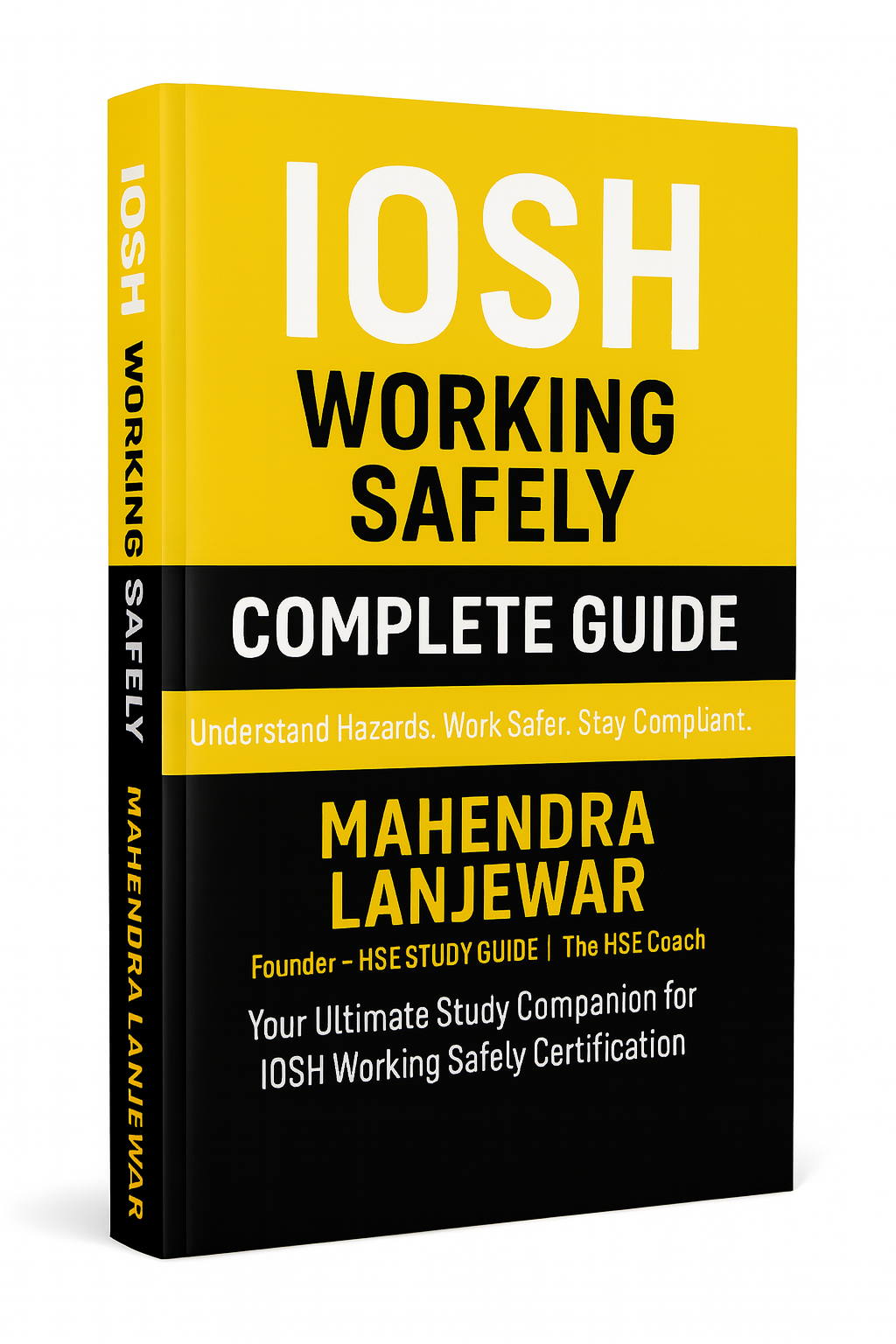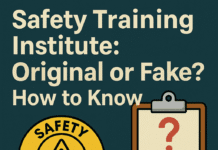
How to Become an Associate Safety Professional (ASP)
Introduction
Becoming an Associate Safety Professional (ASP) is an important step towards a rewarding career in the field of safety management. ASPs play a crucial role in ensuring the safety of employees, protecting the environment, and preventing workplace accidents. If you have a passion for safety and want to make a positive impact in the workplace, this article will guide you through the process of becoming an ASP.
Understanding the Role of an Associate Safety Professional (ASP)
An Associate Safety Professional (ASP) is an entry-level certification awarded by the Board of Certified Safety Professionals (BCSP). ASPs work under the guidance of Certified Safety Professionals (CSPs) and are responsible for assisting in the development, implementation, and evaluation of safety programs within organizations. They conduct risk assessments, identify hazards, and help enforce safety regulations to create a safe working environment.
Educational Requirements for ASP Certification
To become an ASP, you need to meet certain educational requirements. Typically, candidates should have a bachelor’s degree in occupational safety, health sciences, or a related field. The coursework should cover subjects like industrial hygiene, ergonomics, safety management, and risk analysis. Some educational institutions offer specialized ASP exam preparation courses to help candidates succeed in the certification process.
Obtaining Necessary Work Experience
In addition to the educational requirements, candidates need relevant work experience to qualify for the ASP certification. BCSP requires candidates to have at least one year of professional safety experience, which can be gained through internships, co-op programs, or entry-level safety positions. During this time, aspiring ASPs can gain practical knowledge, apply safety principles, and work alongside experienced safety professionals.
Preparing for the ASP Exam
The ASP exam is a comprehensive test that assesses a candidate’s knowledge of safety principles, regulations, and best practices. It is essential to prepare thoroughly for the exam to increase the likelihood of success. Study materials such as textbooks, online resources, and practice exams can be valuable tools during the preparation process. Developing a study plan and dedicating sufficient time to review all the relevant topics is crucial.
Taking the ASP Exam
Once adequately prepared, candidates can schedule their ASP exam with the BCSP. The exam is typically computer-based and consists of multiple-choice questions. During the exam, candidates will be tested on various safety-related topics, including hazard recognition, safety regulations, emergency response, and safety program management. It’s essential to stay calm and focused during the exam to perform at your best.
Gaining ASP Certification
After successfully passing the ASP exam, candidates can apply for the ASP certification from the BCSP. Upon approval, they will officially become Associate Safety Professionals. The certification demonstrates their commitment to safety and professionalism in the field. ASPs can use this achievement to pursue various career opportunities within the safety industry.
Building a Career as an Associate Safety Professional
Once certified as an ASP, individuals can explore a wide range of career paths. ASPs often work in industries such as manufacturing, construction, healthcare, and government agencies. They can hold positions like safety coordinators, safety specialists, or safety technicians. Building a strong foundation through hands-on experience and continuous learning is essential for career advancement.
Networking and Professional Development
Networking within the safety community can open doors to new opportunities and foster professional growth. Joining safety organizations, attending conferences, and participating in industry events can help ASPs connect with peers and mentors. Engaging in continuous professional development is vital for staying up-to-date with the latest trends and advancements in the safety field.
Staying Current in the Safety Field
The safety industry is continuously evolving, and it is crucial for ASPs to stay informed about the latest developments. Subscribing to industry journals, reading research papers, and participating in webinars are excellent ways to expand knowledge. By staying current, ASPs can implement innovative safety practices and contribute to the success of their organizations.
Emphasizing Soft Skills for Success
In addition to technical expertise, soft skills play a vital role in the success of an ASP. Effective communication, problem-solving, leadership, and teamwork are essential qualities that help ASPs excel in their roles. Developing these skills can enhance professional relationships and improve overall safety performance.
Advantages of Being an ASP
Being an Associate Safety Professional comes with numerous benefits. ASPs often enjoy competitive salaries, job security, and opportunities for career advancement. They also play a pivotal role in creating safer work environments, protecting employees’ well-being, and preventing accidents.
Challenges and Opportunities in the Safety Industry
The safety industry presents both challenges and opportunities for ASPs. As safety standards evolve, ASPs need to adapt and implement new strategies. Some challenges include handling complex safety issues, ensuring compliance with regulations, and effectively managing safety programs. However, these challenges also create opportunities for ASPs to showcase their skills and make a meaningful impact.
Conclusion
Becoming an Associate Safety Professional (ASP) is a fulfilling journey for those passionate about safety and workplace well-being. By fulfilling educational requirements, gaining practical experience, and passing the ASP exam, individuals can achieve their certification. Through continuous learning, networking, and emphasizing soft skills, ASPs can build successful careers and contribute to safer workplaces.
FAQs
- Q: What is the role of an Associate Safety Professional (ASP)? A: An ASP assists in the development and implementation of safety programs, conducts risk assessments, and enforces safety regulations.
- Q: What are the educational requirements for ASP certification? A: Candidates should have a bachelor’s degree in occupational safety or a related field.
- Q: How can I prepare for the ASP exam? A: Prepare by using study materials, textbooks, and practice exams to cover safety-related topics thoroughly.
- Q: What are the advantages of being an ASP? A: ASPs enjoy competitive salaries, job security, and opportunities for career advancement while contributing to workplace safety.
- Q: How can ASPs stay current in the safety field? A: By subscribing to industry journals, reading research papers, and participating in webinars to stay informed about the latest developments.





















